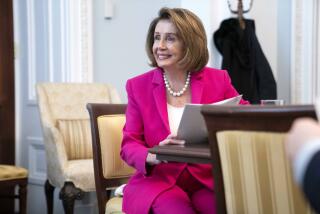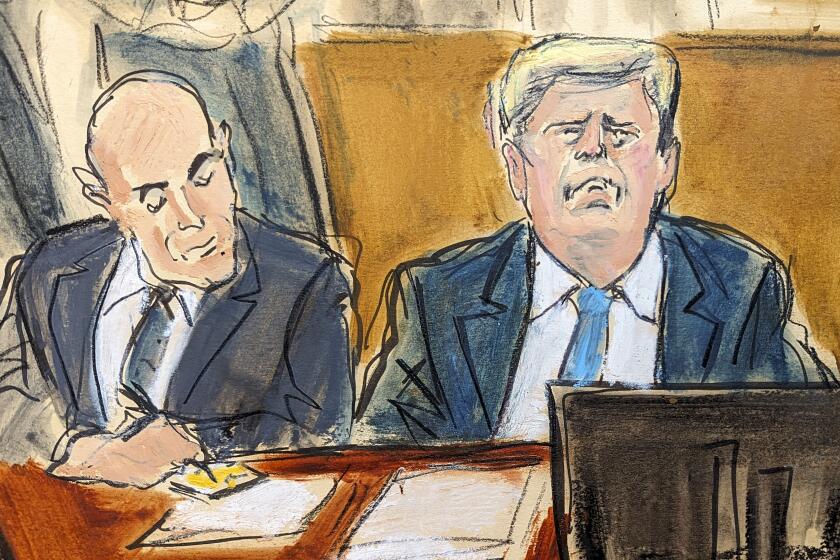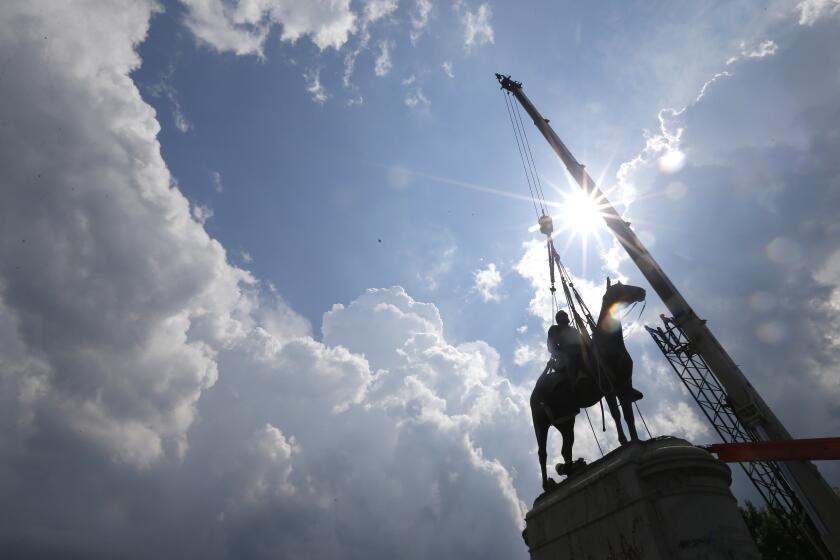Stop Quibbling, Start Debating
The quadrennial candidate dance around the issue of presidential debates has begun. In past campaigns, the debate questions seemed endless: Where to hold the debates, when, who will be the sponsors, who will ask the questions, will the candidates sit on stools or stand behind rostrums? It’s infuriating and unnecessary. Stop the music now. These details can be settled by the private nonpartisan Commission on Presidential Debates.
The commission already has scheduled three presidential debates, on Oct. 3 in Boston, Oct. 11 in Winston-Salem, N.C., and Oct. 17 in St. Louis. A vice presidential encounter would be held in Danville, Ky., Oct. 5. The commission is headed by former Democratic National Chairman Paul G. Kirk Jr. and former Republican National Chairman Frank J. Fahrenkopf Jr. It has sponsored presidential campaign debates successfully since 1988.
Since preparations are underway, the sites and dates are not negotiable, Kirk said. Three formats have been proposed: a town hall setting with questions from the audience, the two candidates at a table with a single moderator, and the traditional format with the two candidates standing behind rostrums and taking questions from a panel.
The Al Gore campaign has agreed to the commission proposal but has made no formal commitment, a commission official said Monday. Last week, the George W. Bush campaign proposed three Bush-Gore meetings and two between the vice presidential nominees, Dick Cheney and Joseph I. Lieberman. But the Bush camp has not accepted the commission’s plan and is sifting through other offers of sponsorship.
The commission plan is reasonable, and the candidates should commit themselves now. Format details still can be negotiated. In fact, the sessions with a single moderator often have been the least stilted and most productive. If the candidates want to have more than the four debates--and they should--they can negotiate others among themselves outside of the commission plan.
The candidates have been mute on another debate issue, whether to include Green Party candidate Ralph Nader and presumptive Reform Party standard-bearer Pat Buchanan. For several elections, the commission has set a threshold of 15% in the opinion polls to qualify for the debates. Ross Perot made it in 1992 but was excluded in 1996, a decision he sued, unsuccessfully, to overturn. Nader and Buchanan argue that they cannot win if they are excluded from the debates. More important to the voters, a discussion on a broader range of issues can be curtailed by limiting all debates to Bush and Gore.
The commission should reconsider adjusting its 15% standard for inclusion in presidential debates. The Nader candidacy, particularly in key states like California, and the Buchanan candidacy to a lesser degree, can have real impact in what is expected to be a tight Bush-Gore race.
The debates provide a critical means for voters to measure the contenders. The voters don’t want to hear more political jockeying over debates. Presidential debates should move forward.
More to Read
Get the L.A. Times Politics newsletter
Deeply reported insights into legislation, politics and policy from Sacramento, Washington and beyond. In your inbox three times per week.
You may occasionally receive promotional content from the Los Angeles Times.






